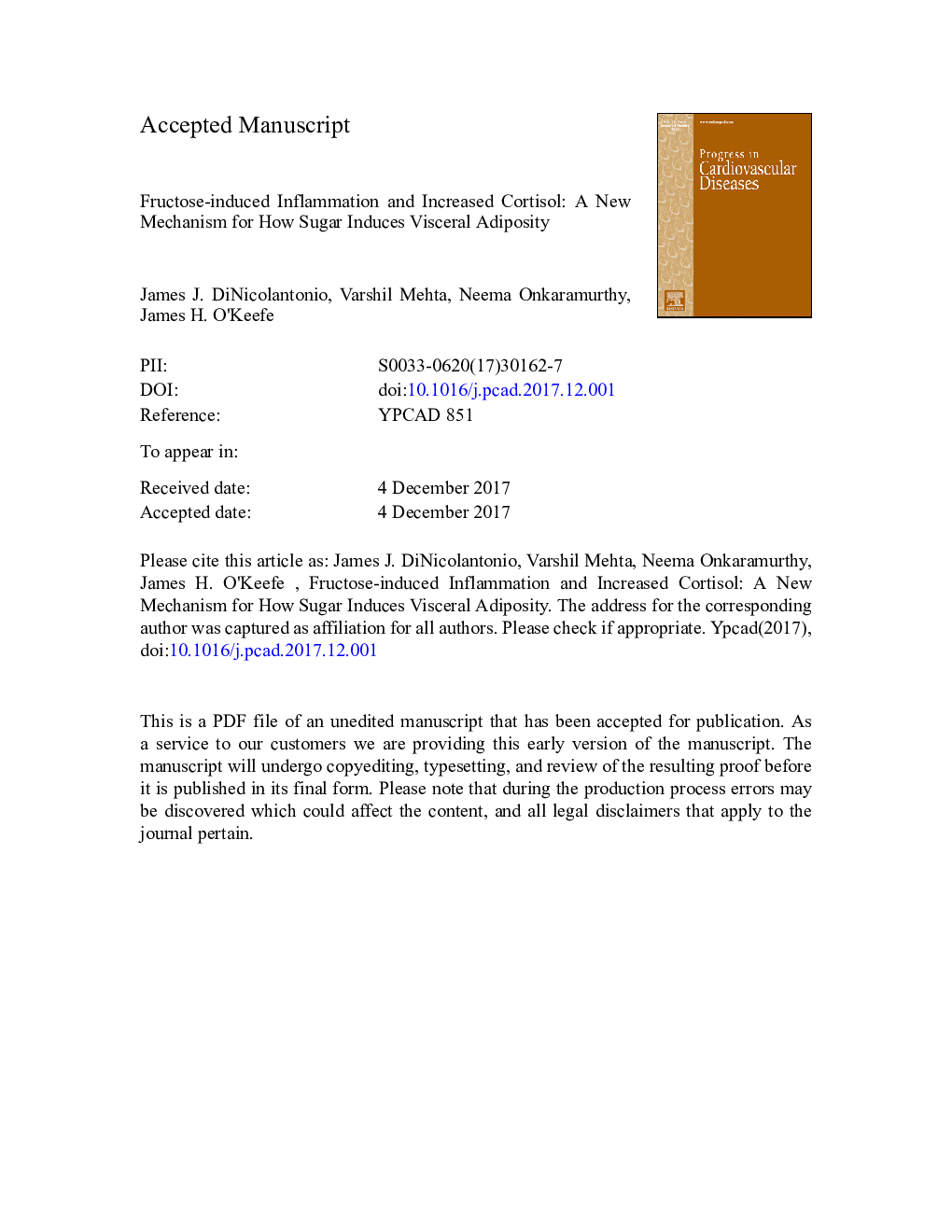| Article ID | Journal | Published Year | Pages | File Type |
|---|---|---|---|---|
| 8675206 | Progress in Cardiovascular Diseases | 2018 | 35 Pages |
Abstract
Traditionally, the leading hypothesis regarding the development of obesity involves caloric imbalance, whereby the amount of calories consumed exceeds the amount of calories burned which causes obesity. Another hypothesis for why we get fat has surfaced in the last decade which is the idea that the overconsumption of added sugars and refined carbohydrates induce insulin resistance and high insulin levels causing obesity. While insulin is a fat-storing hormone, this hypothesis does not explain visceral adiposity, or why certain people are found to have fat stored in and around their organs. We propose a new mechanism for body fattening, particular visceral adiposity. This hypothesis involves the overconsumption of fructose, which leads to inflammation in all cells that metabolize it rapidly. When fructose is metabolized in subcutaneous adipocytes, the subsequent inflammation leads to an increase in intracellular cortisol in order to help squelch the inflammation. Unfortunately, the increase in intracellular cortisol leads to an increased flux of fatty acids out of the subcutaneous adipocytes allowing more substrate for fat storage into visceral fat tissue. Moreover fructose-induced inflammation in the liver also leads to increased intracellular cortisol via an upregulation of 11-B hydroxysteroid dehydrogenase type 1 causing increased fat storage in the liver (i.e., fatty liver). In essence, the fructose-induced inflammatory cortisol response causes “thin on the outside, fat on the inside” (TOFI). Furthermore, fructose in the brain, either from fructose uptake via the blood brain barrier or endogenous formation from glucose via the polyol pathway stimulates an increased release of cortisol causing hepatic gluconeogenesis leading to overall insulin resistance and further body fattening. This review paper will discuss in detail the hypothesis that fructose-induced inflammation and cortisol activation causes visceral adiposity.
Keywords
IRS1T2DMCP-111β-HSD1ICAM-1HFCSDHAPFFAPFKACTHCRHKHKscATFree fatty acidsinflammationWhite adipose tissuetumor necrosis factor-alphadihydroxyacetone phosphateType 2 diabetesinsulin receptor substrate 1Metabolic syndromeHigh-fructose corn syrupTNF-αFructosePhosphofructokinaseSugarVATPVNMETSObesityintracellular adhesion molecule-1paraventricular nucleusadrenocorticotropic hormonecorticotropin-releasing hormonemonocyte chemoattractant protein-1FatVisceral adiposityWATketohexokinasecortisol
Related Topics
Health Sciences
Medicine and Dentistry
Cardiology and Cardiovascular Medicine
Authors
James J. DiNicolantonio, Varshil Mehta, Neema Onkaramurthy, James H. O'Keefe,
